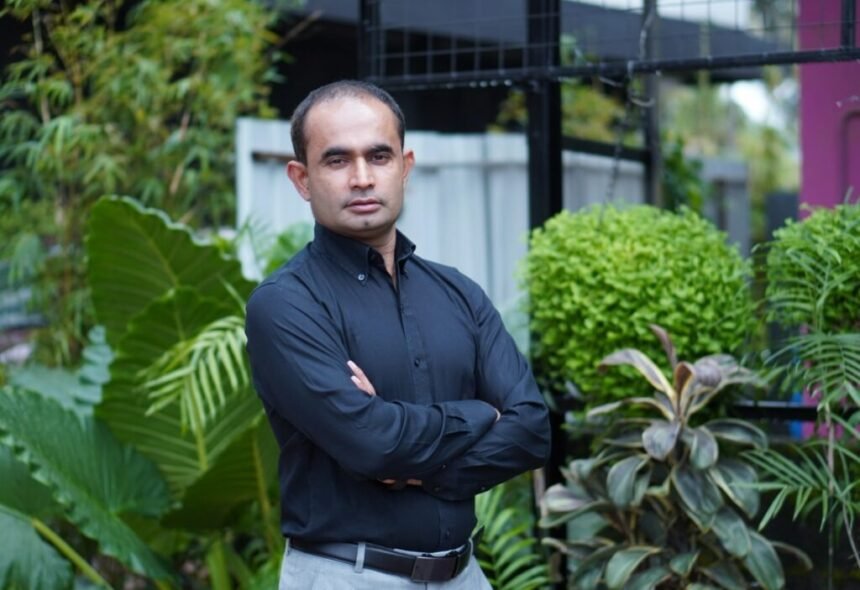In the high-stakes world of fintech, “hypergrowth” is a sought-after distinction. It marks a company’s meteoric rise, attracting investors, boosting valuations, and often leaving competitors in the rearview. But as companies expand, there’s a critical asset that is often overlooked: culture. While talent can scale rapidly, culture often lags behind. Onboarding hundreds of new employees within a short timeframe strains the values and rhythms that once defined a small, cohesive team.
New employees, without the same context or mentorship, can struggle to align with the company’s core mission, which, if unaddressed, leads to fragmentation. Teams begin to operate in silos, communication becomes diluted, and the innovation that once fueled growth starts to fade. For Sabeer Nelli, founder and CEO of Zil Money, this challenge is personal. As his company grew from a small, tight-knit group to a global workforce of over 200, he took on the role of Chief Culture Officer. For him, culture is not just an outcome of success—it’s the very engine that drives it. Protecting this culture, he argues, is his most important job.
Culture as a Strategic Pillar for Sustainable Growth
Sabeer’s commitment to culture is rooted in what he refers to as “Founder DNA.” This set of guiding principles spans his diverse career, from running Tyler Petroleum, a successful oil and gas company, to transitioning into the digital finance world. His move into fintech was a lesson in adaptation, but it also underscored a timeless business truth: the fundamental principles for building strong teams and resilient organizations remain constant, even as strategies and technologies evolve.
At Zil Money, he has made culture the cornerstone of his growth strategy. His AI-first approach drives operational efficiency and shapes the company’s future. While many CEOs are laser-focused on hard metrics, Sabeer views culture as a product in its own right—one that requires constant refinement and investment.
The Challenge of Scaling Intimacy
A major hurdle in preserving culture during rapid expansion is what Sabeer calls “scaling intimacy.” In the early stages, camaraderie and shared purpose come naturally. But as a company grows, that close-knit feeling can dissipate, leaving employees feeling detached from the larger mission. Sabeer addresses this by prioritizing “the hard work of soft skills.”
Zil Money runs regular meetings, workshops, and training programs to foster collaboration across departments and equip employees with the interpersonal skills that nurture a thriving culture. The company also embraces local traditions and celebrations to help build a sense of community, regardless of geographical location.
These initiatives are more than just about professional development—they provide structured spaces for informal interactions that build trust and social capital. By training managers to be empathetic leaders, give constructive feedback, and offer coaching, Sabeer is developing a distributed network of “culture carriers” who can maintain that sense of intimacy at the team level, even as the company grows.
Onboarding: The First Step in Cultural Integration
Zil Money’s commitment to cultural preservation starts with onboarding. In many fast-growing companies, onboarding is reduced to an administrative checklist. At Zil Money, however, it’s viewed as a crucial moment for cultural transmission. Sabeer believes that onboarding is where employees should first connect to the company’s deeper purpose. “Too many companies treat onboarding as a logistical necessity,” he says. “For us, it’s a culture transfer.”
From day one, new hires are introduced to the company’s core mission and values. Each new employee is paired with a mentor to guide them through the company’s culture, history, and vision for the future. This hands-on approach ensures that every team member understands not just what they do, but why they do it.
Evolving Leadership as the Company Scales
Leading a 200-person global team requires a different skill set than managing a 20-person startup. As Zil Money scaled, Sabeer recognized that his role had to evolve. While a small team requires a player-coach approach, scaling a company demands systems that nurture culture without his direct involvement in every detail. Embracing this shift, Sabeer learned to delegate, trust his leadership team, and act as the culture’s most ardent advocate and protector.
Final Thoughts: A Culture-First Approach to Sustainable Growth
As Zil Money continues to grow, Sabeer remains unwavering in his commitment to preserving the company’s core culture. Recognizing that rapid growth can strain interpersonal connections, he places high value on cultural integration through mentorship, focused onboarding, and ongoing professional development. By embedding these values from the very beginning, he ensures that culture remains the foundation of Zil Money’s success—fostering sustainable growth and innovation as the organization expands.







